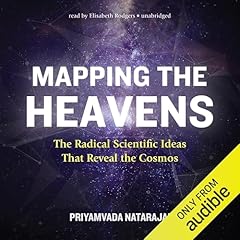
The Planet X Hypothesis
The History and Legacy of the Theory That the Solar System Has a Hidden Planet
No se pudo agregar al carrito
Add to Cart failed.
Error al Agregar a Lista de Deseos.
Error al eliminar de la lista de deseos.
Error al añadir a tu biblioteca
Error al seguir el podcast
Error al dejar de seguir el podcast
 Exclusivo para miembros Prime: ¿Nuevo en Audible? Obtén 2 audiolibros gratis con tu prueba.
Exclusivo para miembros Prime: ¿Nuevo en Audible? Obtén 2 audiolibros gratis con tu prueba.Compra ahora por $11.18
-
Narrado por:
-
Jim D. Johnston
The question of man’s place in the extended universe has been pondered by every known culture since the beginning of recorded history. Lacking the means to prove otherwise, discussions of an alternative to Earth’s solitary existence have remained conceptual. The ongoing debate is spurred by the appearance of unexplainable phenomena through the centuries in the atmosphere and the space beyond, so much so that contact with alien civilizations has been depicted in some of the most ancient examples of representational art.
In the rock drawings of Valcamonica on Italy’s Lombardy Plain, tantalizing etchings suggest that ancient man experienced the same type of appearances as those revealed to modern man. These drawings dating back to 10000 BCE serve as the counterpart to the present day’s alleged evidence of such contact. In addition to aerial craft, depictions include light emitting, helmeted human figures carrying unidentifiable artifacts. Such examples are to be found not only in the terrain of the world’s land mass, but also in ancient tablets, temples, and vast Western cathedrals.
Naturally, as technological advances and the creation of flying aircraft became realities, the sighting of UFOs increased, as did the interest in potential contact with aliens. While incidents like the one at Roswell led to conspiracies and a craze among those who insisted the government was hiding proof of extraterrestrials’ existence, governments across the world were actually secretly studying UFO sightings by the mid-20th century.
Given all of that, it was hardly groundbreaking for scientists in the 19th century to have plenty of heated debates about their imperfect knowledge of astronomy. One particular argument was over whether there was a hidden planet beyond Neptune, dubbed by the theory’s original proponent, Percival Lowell, as Planet X. When Pluto was discovered in 1930, at the start of the Great Depression, scientists originally thought this new world, in the extreme cold at the outer edge of the Solar System, would solve a decades-old mystery regarding the orbit of Uranus, the seventh planet from the Sun. But soon, scientists realized that Pluto, at one point considered the ninth planet, was too small to explain the discrepancies found. Thus, some researchers began looking for the next planet, or Planet X.
Throughout our modern culture, “X” has remained the proverbial symbol of mystery. On the maps of buried pirate treasure, “X” is supposed to mark the spot where treasure seekers are to dig. In public schools, teenagers learn the utility of “X” as a variable in algebraic equations or as an axis in the Cartesian coordinate system. And “X” is also a Roman numeral symbolizing the quantity of 10, the highest value which can be counted on the fingers, and the next value beyond “nine,” the largest single digit. The search for “Planet X,” then, is a quest rich with symbolism and mystery, rooted in history, astronomy, and astrology.
Los oyentes también disfrutaron:






















